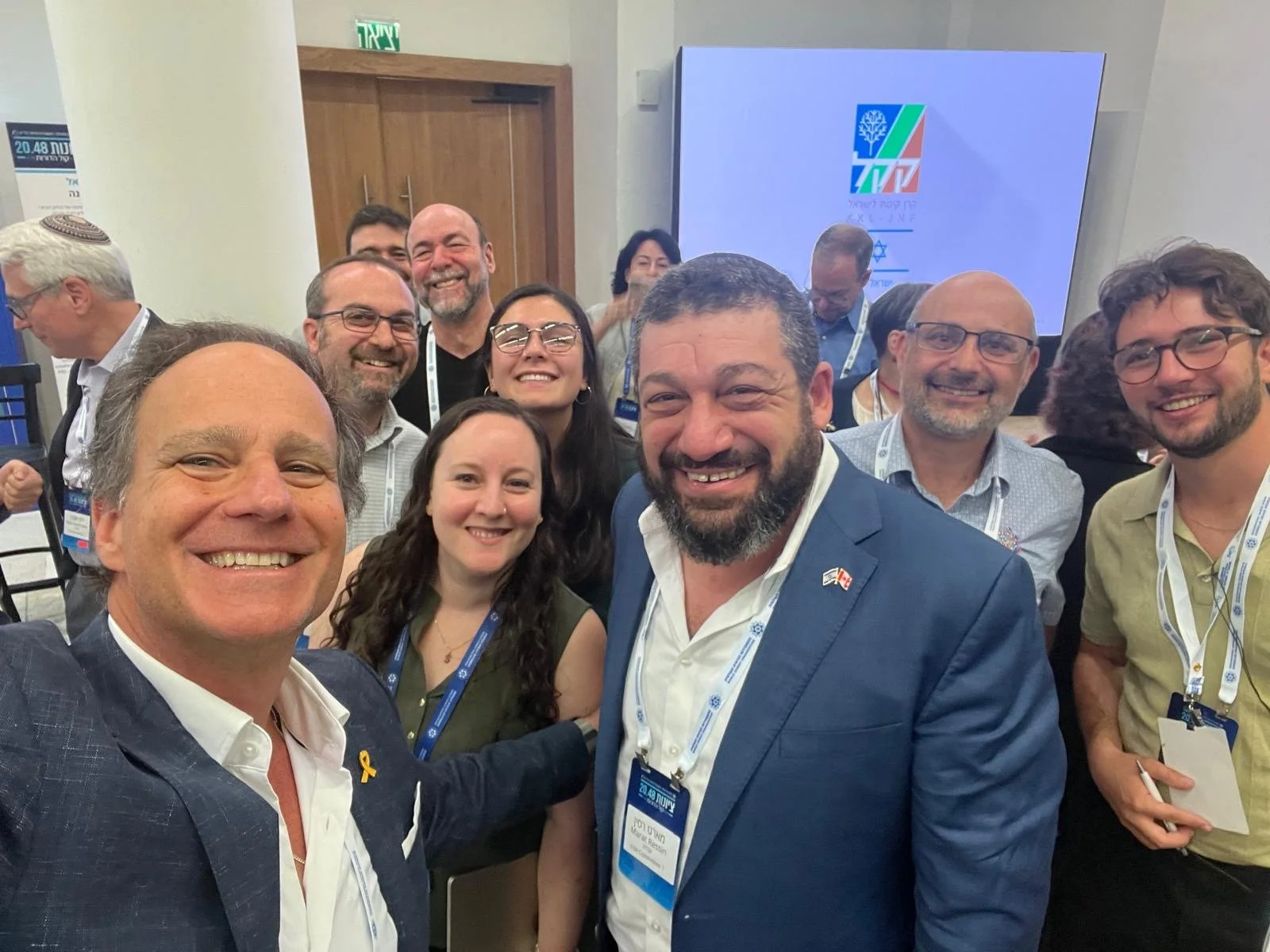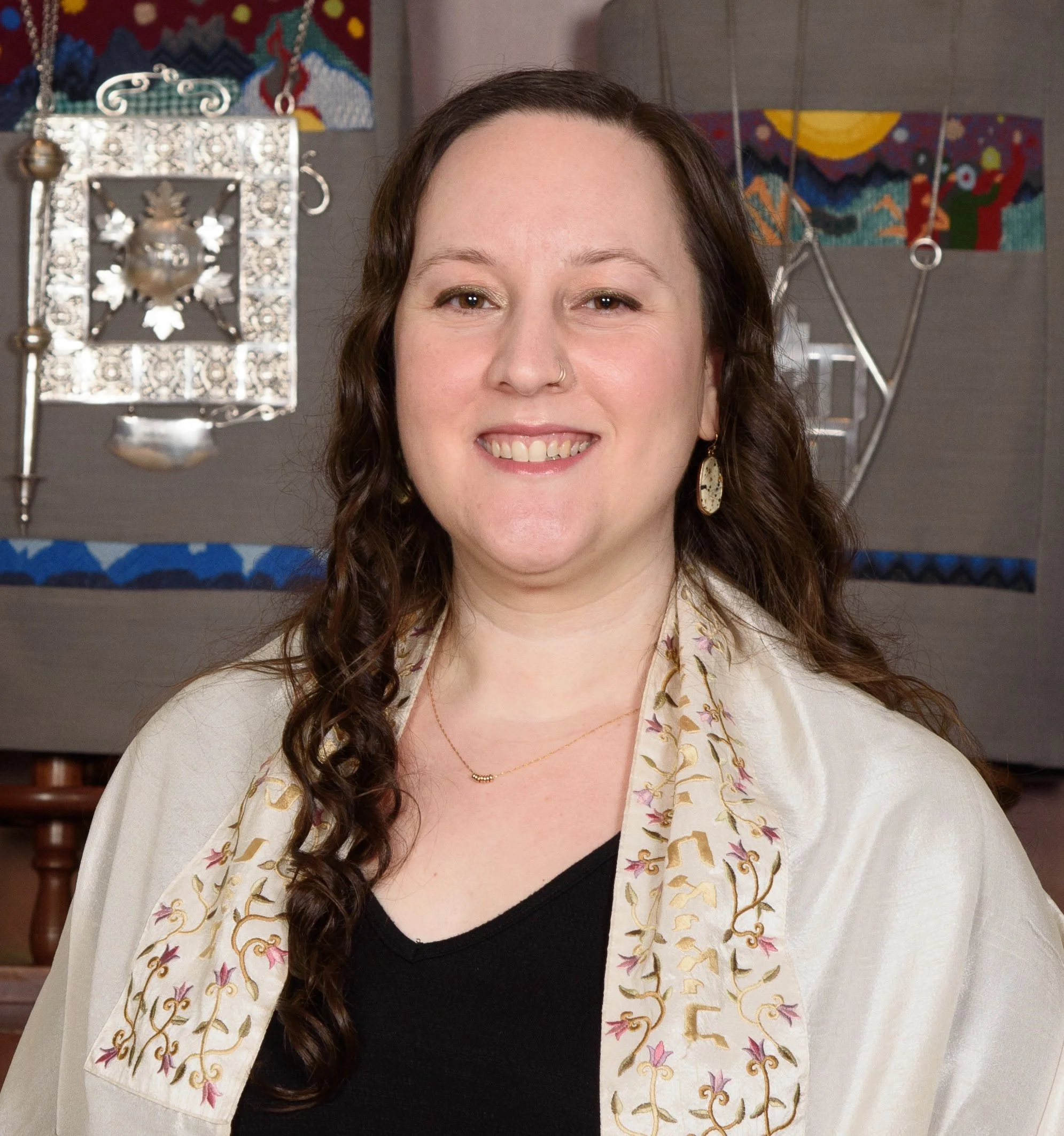WZC 2025: Day 2 (October 29)
Day two of the Congress started bright and early at 7:30 a.m. After an exciting first day of ceremony and celebration, we were ready to buckle down for the real business of the WZC. Little did we know at that point that we were in for more than 16 consecutive hours of said business!
The day began with faction meetings — all of our ARZENU and WUPJ delegates and alternates met and received instructions from our leadership, and then we had time to reconvene by committee groups to continue strategizing our advocacy for or against our committees’ resolutions. Partway through this time, we were joined by our partners from the Conservative Movement — Mercaz Olami and Masorti Olami. It was both sweet and useful to have some time with our counterparts, both for the personal connection, and to make sure our strategies were aligned for maximum effectiveness.
For the next hour, we all went in different directions — some joined a beit midrash program (including our own Rabbi Josh Weinberg as one of the facilitators!), some fortified themselves with a coffee break, and others used the time for more committee prep.
Finally, the main event began at 10:15 and the voting delegates found our committee rooms, making sure to arrive a few minutes early to secure seats around the (rather small!) tables. I was assigned to the committee focused on sovereignty and borders, in which we debated resolutions concerning the status of the Temple Mount, The West Bank and Jordan Valley, and Area E-1 — undoubtedly the most contentious issues raised during the Congress (more on that later). But we had lots of fun duking it out with the right-wing opposition, making our case and hearing theirs.
It’s the norm at the WZC for each person to use the language they are most comfortable speaking and devices for simultaneous translation were available. It so happened that our committee’s chair was most comfortable in English, so that’s how we proceeded. Overall, we had productive discourse on the topics at hand, with a minimum of bad behavior. However, one must always be vigilant about procedure, and making sure everyone follows the rules! It’s the chair’s responsibility to ensure this, but they don’t always know the rules, or know how to enforce them. There were a couple lively moments where our delegation spoke up to prevent any funny business — some resolved in the moment, others didn’t get cleared up until much later.
The committee sessions were supposed to run from 10:15 to 1:30, but but schedules are really only a suggestion at the WZC, and our committee continued for another hour and ten minutes beyond that time, so we could deliberate on the third and final proposed resolution.
Already before that time, we had gotten word of a major change of agenda: Due to a planned Charedi protest the following day that promised to bring 1 million protesters to Jerusalem (with the intention of blocking the main road connecting Jerusalem and Tel Aviv), the voting plenum was moved from Thursday morning to Wednesday evening, essentially cancelling the entire third day and folding it into day two. The only thing you can expect at the WZC is the unexpected!
Our tiyyulim to various parts of the country were cancelled for voting delegates, but alternates and guests were still able to visit Nir Oz, Kfar Aza, the Nova Site, and other compelling destinations. For the voting delegates, we were treated to a WZC special — a large block of time where there was nothing to do, but during which we were not permitted to leave. (This was my second WZC, and the same thing happened last time, although for different reasons.)
ARZENU/WUPJ made the most of our time, however, and reconvened to share what took place in each of the committees and strategize our next moves in the voting plenum. We were well organized and in good spirits — at least until dinner was revealed to be airplane dinners, essentially, plastic wrap and all!
Finally it was 6:00 p.m. and time for the main event. The voting plenum was chaired by the heroic, inspiring, and brilliant Rabbi Lea Mühlstein, who hails from London, and is the immediate past-chair of ARZENU. It was Rabbi Mühlstein’s unenviable task to wrangle a room of hundreds of delegates and alternates and make sure we could proceed with maximum efficiency and minimum disruption. She did an amazing job at this, weathering some extremely disrespectful behavior with poise and humor, and a relentless commitment to ending before midnight.
Through sheer force of will, this goal was accomplished, despite an enormous agenda. For each of the nearly thirty resolutions, the full text had to be read aloud, then three minutes allotted for a speaker in favor of the resolution, and three minutes for a speaker in opposition. And then there was the voting itself, which was done through a buggy online system that led to more than a few delays.
In the end, the outcome of the voting was overwhelmingly positive for our faction. Every resolution we supported passed and was adopted by the WZO, and we managed to defeat several extremely problematic resolutions. Although we started Congress with some concern that the numbers were not on our side, we prevailed! Our incredible success was due to a few significant factors: We had leaders and delegates who are both brilliant and committed; we were very well organized; we worked very hard, and, most importantly, we brought our values to bear in every step of the process.
After the final vote (the most controversial resolution from my committee was the last one called, even though it was the first in numerical order), Rabbi Mühlstein concluded the Congress with HaTikvah, and the whole room rose to sing together. After that, a bottle of whiskey materialized, l’chaims were made, joyful songs were sung, and we headed to the shuk to celebrate! All in all, it was a landmark day for Israel, Zionism, and the Jewish people.
Shira Gluck is the Associate Rabbi and Director of Congregational Learning at Temple Sinai in Summit, NJ. A former ARZA Rabbinic Intern, she has previously served Congregation Emanu-El of NYC, Anshe Emeth Memorial Temple in New Brunswick, NJ, and Stephen Wise Free Synagogue in New York. Shira is a graduate of Oberlin College and Hebrew Union College-Jewish Institute of Religion, and has been a ARZA Clergy Fellow, a Leffell Israel Fellow, and Hartman Institute iEngage Rabbinic Fellow. This is her second time serving as an ARZA delegate to the WZC.


